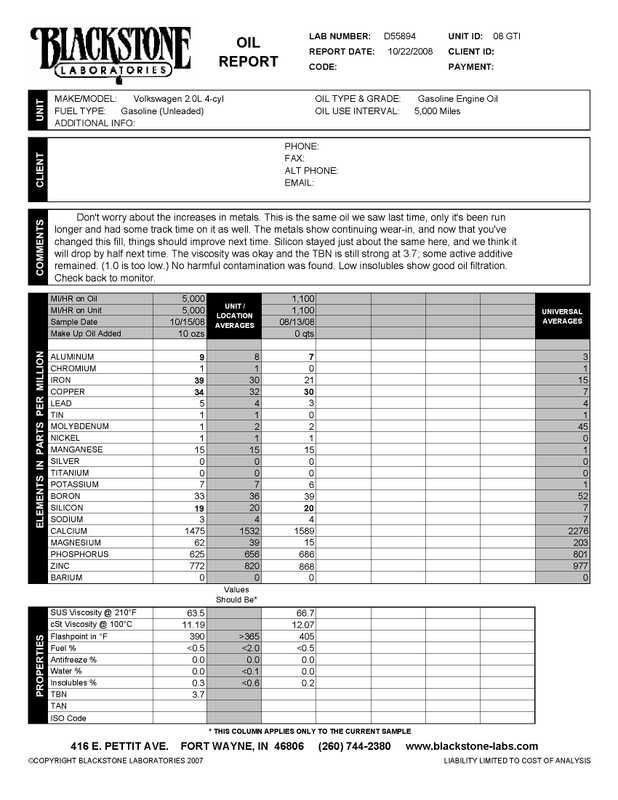Hello, Here is a sample of factory fill for a 08 VW GTI 2.0 FSI Turbo. The right hand column is after vw's 1000 mile break in period while the left hand column is at VW's recommended 5000 mile first oil change. So it provides some data points for the question "should factory fill be changed out early?" It actually looks better than I expected. All comments welcome. Thanks!
Also 8 oz. of oil were consumed in one track day and replaced with GC, a couple ounces were removed for the blackstone sample at 1100 miles.

Also 8 oz. of oil were consumed in one track day and replaced with GC, a couple ounces were removed for the blackstone sample at 1100 miles.

Last edited:
